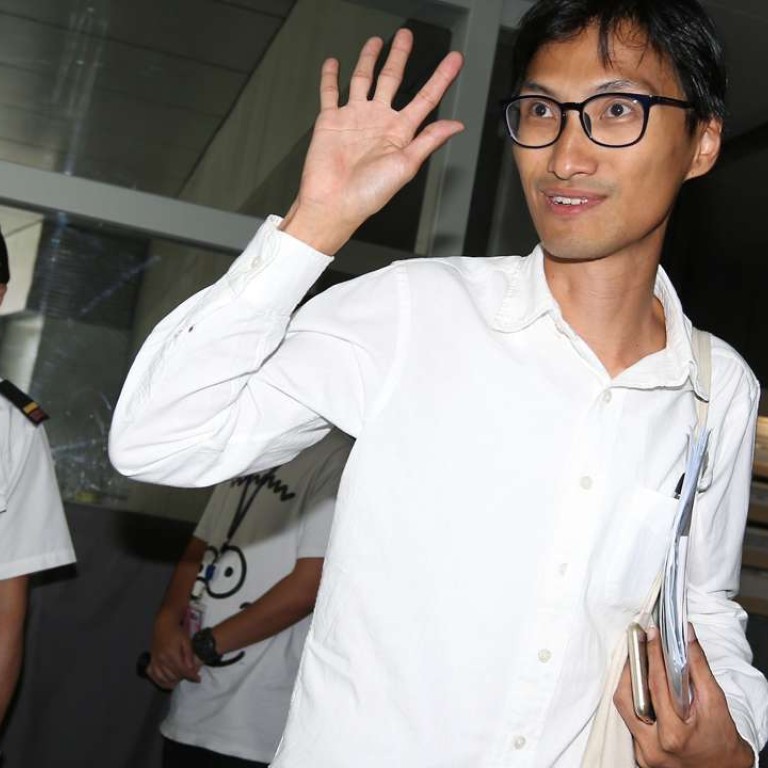
Hong Kong lawmaker-elect Eddie Chu calls for radical rethink of way Heung Yee Kuk is chosen
Activist says heads of rural committees should be elected by all villagers and government appointment of ex-officio councillors should be scrapped
Lawmaker-elect Eddie Chu Hoi-dick believes the way kuk leaders are elected and appointed should be reformed, but concedes changing the law will be difficult.
For now, he said, he could make a start by raising the issue in the legislature.
“The kuk should exist as a democratic representative for villagers. Without it, it is difficult to work towards rural-urban symbiosis,” Chu said in an interview with the Post after winning a landslide victory in the Legislative Council polls.
He was referring to his idea that Hong Kong should conserve its farmland and countryside to become ultimately self-sufficient in food supply.
He set out two points on how the kuk should be overhauled.
First, the heads of the existing 27 rural committees, which form the middle layer of leadership, should be elected by those living in 700 villages through “one person, one vote”. Currently, they are elected by village heads.
Second, the government appointment of ex-officio executive councillors to the kuk should be scrapped.

Junius Ho Kwan-yiu, for example, was able to become such a councillor for life in his capacity as a New Territories Justice of the Peace, which he became in July.
Chu plans to draft a private member’s bill to amend the Heung Yee Kuk Ordinance, but admits that a bill is unlikely to be passed.
In response, Ho said a Justice of the Peace should not have lifelong membership of the kuk.
“I have no problem with capping the number of terms a JP serves as a kuk member,” Ho said, adding those who wanted kuk reform should study its history first.
Alfred Lam Kwok-cheong, a solicitor and ex-officio member of the kuk, said he agreed there was a need for the kuk to keep abreast of the times.
However the existing system had been operating effectively for 90 years and it was therefore necessary to ponder the pros and cons before making changes.


